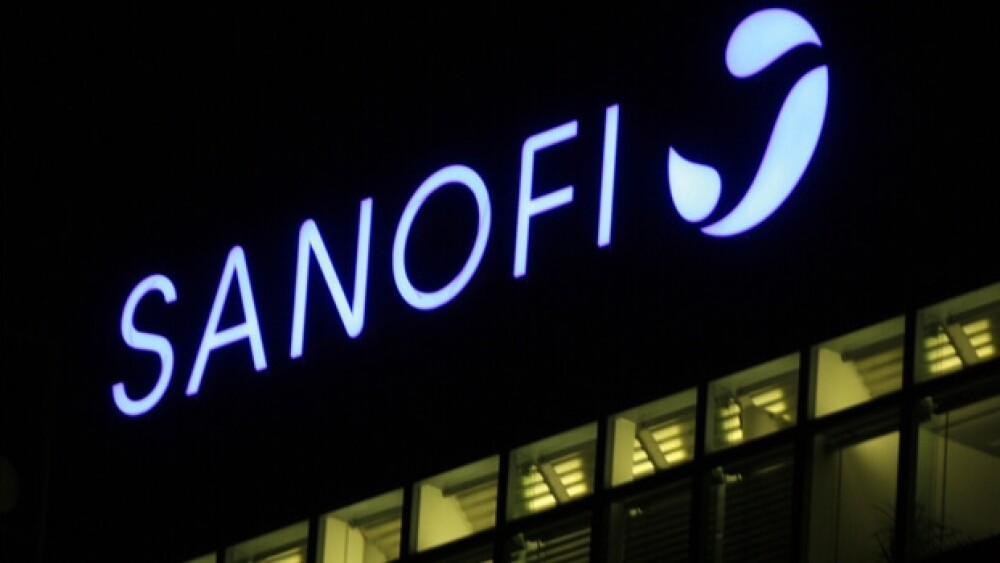Sanofi’s experimental breast cancer treatment amcenestrant in combination with Pfizer’s Ibrance is showing promising anti-tumor activity in postmenopausal women with metastatic breast cancer.
360b/Shutterstock
Sanofi’s experimental breast cancer treatment amcenestrant in combination with Pfizer’s Ibrance is showing promising anti-tumor activity in postmenopausal women with metastatic breast cancer. Data from an early analysis of a Phase I/II study will be one of the highlights the French pharma giant showcases at the American Society of Clinical Oncology meeting.
Ahead of the annual oncology summer conference, Sanofi shared pooled analysis from an ongoing Phase I study with amcenestrant and Ibrance in postmenopausal women with estrogen receptor-positive (ER+)/human epidermal growth factor receptor 2-negative (HER2-) metastatic breast cancer (MBC) with BioSpace.
Peter Adamson, Sanofi’s global head of oncology, clinical development and pediatric innovation, said the interim data from the Phase I AMEERA-1 study is promising, given the unmet medical need in ER+ breast cancer. Adamson said seven in 10 women will have breast cancer that is hormone receptor positive. Of those, 20% will become metastatic with a median survival of five years.
Amcenestrant, an oral SERD, antagonizes and degrades the estrogen receptor that shuts down signaling in the ER pathway, Adamson said. Early clinical data suggests that amcenestrant in combination with Pfizer’s Ibrance (palbociclib), a CDK4/6 inhibitor, is demonstrating anti-tumor activity in these patients. Additionally, the combination is showing a positive safety profile.
In the AMEERA-I study, which is assessing the combination as a first-line treatment option for this form of breast cancer, amcenestrant was dosed at multiple levels alongside a standard dose of Ibrance. In a cohort assessing 200mg of amcenestrant and Ibrance, Sanofi reported the objective response rate (ORR) was 34% with a clinical benefit rate of 74%.
Patients participating in the AMEERA-I study include women with histological diagnosis of breast adenocarcinoma with locally advanced or metastatic ER+/HER2- disease and at least six months of prior exposure to endocrine therapy. That includes patients with early relapse while on adjuvant endocrine therapy that was initiated more than 24 months ago, or who relapsed less than 12 months after completion of adjuvant endocrine therapy, according to Sanofi. Adamson said endocrine therapy is the cornerstone for improving the outcome in breast cancer.
In addition to amcenestrant combined with Ibrance, Sanofi is also looking at amcenestrant as a stand-alone drug in second-line or later lines of treatment for the same indication.
“At ASCO, we will present data that suggests the drug could be a backbone therapy for ER+ breast cancer,” Adamson said.
Alexander Zehnder, global head of oncology at Sanofi Genzyme, expressed hope that the positive data Sanofi is seeing so far with amcenestrant will allow the company to continue to build on the success it has seen over the past year in oncology.
Over the course of 2002, Zehnder said Sanofi has made significant progress developing its mid- to late-stage oncology pipeline. He pointed to several successes the company has enjoyed since ASCO 2020, including multiple successes with Libtayo, the company’s checkpoint inhibitor. Twice this year Libtayo has scored with the FDA.
In January, Libtayo won FDA approval as the first immunotherapy indicated for patients with advanced basal cell carcinoma (BCC) previously treated with a hedgehog pathway inhibitor (HHI) or for whom an HHI is not appropriate. In February of this year, it won approval for the first-line treatment of patients with advanced non-small cell lung cancer (NSCLC) whose tumors have high PD-L1 expression.
In addition to Libtayo, Zehnder pointed to multiple myeloma drug Sarclisa as another cornerstone of the company’s oncology pipeline. Sarclisa is a monoclonal antibody that binds to the CD38 receptor on multiple myeloma cells.
In April, the FDA approved Sarclisa in combination with carfilzomib and dexamethasone (Kd), for the treatment of adult patients with relapsed refractory multiple myeloma (RRMM) who have received one to three prior lines of therapy. That marked the second approval for Sarclisa. Last year, the FDA greenlit the drug for the treatment of adults with RRMM who have received at least two prior therapies including lenalidomide and a proteasome inhibitor.
“We want to build next generation standard of care backbone therapies for different kinds of cancer,” Zehnder said.





